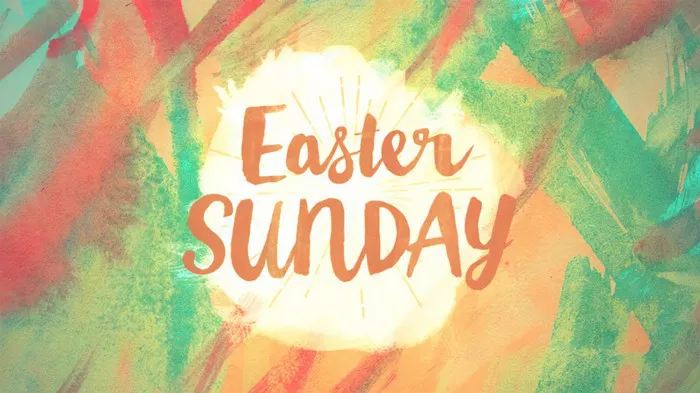Easter Sunday, celebrated by millions around the globe, stands as one of the most significant events in the Christian calendar. It marks the culmination of Holy Week, commemorating the resurrection of Jesus Christ after his crucifixion, and holds profound symbolic meaning for believers worldwide. Beyond its religious significance, Easter Sunday embodies themes of renewal, rebirth, and hope that resonate across cultures and faiths.
The Resurrection: Foundation of Faith
At the heart of Easter Sunday lies the cornerstone of Christian belief—the resurrection of Jesus Christ. According to the New Testament accounts, Jesus, crucified on Good Friday, rose from the dead on the third day, signaling victory over sin and death. This miraculous event is central to Christian theology, representing the fulfillment of divine prophecy and the promise of eternal life for believers.
The resurrection narrative is a testament to the power of faith and redemption, demonstrating God’s triumph over the forces of darkness and despair. It serves as a source of inspiration and comfort for Christians, reminding them of the transformative potential of Christ’s love and sacrifice.
Symbols of Renewal and Rebirth
Easter Sunday is replete with symbols that reflect the themes of renewal and rebirth. Chief among these symbols is the Easter egg, a universal emblem of new life and fertility. Dating back to ancient pagan traditions, the egg has been associated with springtime festivals and the rejuvenation of nature. In Christian symbolism, the egg represents the tomb from which Christ emerged victorious, symbolizing the beginning of a new life and the hope of salvation.
Similarly, the Easter lily, with its pristine white petals and delicate fragrance, is a symbol of purity, innocence, and resurrection. Its trumpet-shaped blooms evoke images of trumpets heralding the risen Christ and the promise of everlasting life. Churches and homes alike are adorned with these fragrant flowers, serving as a visual reminder of the triumph of life over death.
The Paschal Lamb: Sacrifice and Redemption
Another powerful symbol associated with Easter Sunday is the Paschal Lamb, representing the sacrificial offering of Jesus Christ. In the Old Testament, the Israelites were commanded to sacrifice a lamb as a symbol of atonement for sin during the Passover feast. This tradition finds its ultimate fulfillment in the person of Jesus, often referred to as the “Lamb of God” who takes away the sins of the world.
The imagery of the Paschal Lamb underscores the profound nature of Christ’s sacrifice on the cross, where he willingly offered himself as a ransom for humanity’s sins. Through his death and resurrection, Christians believe that Christ bridged the gap between God and humanity, offering reconciliation and redemption to all who believe in him.
Hope Amidst Despair
Easter Sunday emerges as a beacon of hope in the midst of despair, offering solace to those grappling with adversity and uncertainty. In a world plagued by suffering, injustice, and loss, the message of Easter resonates deeply, reminding believers that even in the darkest of times, there is the promise of new beginnings and the assurance of God’s unfailing love.
The resurrection of Jesus serves as a powerful antidote to despair, demonstrating that death does not have the final word and that hope springs eternal. For Christians, Easter Sunday represents the triumph of light over darkness, good over evil, and life over death—a message of hope that transcends temporal realities and speaks to the deepest longings of the human heart.
Celebrating Community and Fellowship
Beyond its theological significance, Easter Sunday is a time for communal celebration and fellowship among believers. Churches around the world are filled with worshippers gathering to commemorate the resurrection through prayers, hymns, and sacraments. The joyous atmosphere is palpable as families come together to share meals, exchange gifts, and participate in festive activities.
Easter egg hunts, parades, and pageants are common traditions that bring communities together in a spirit of camaraderie and joy. These rituals serve to reinforce the bonds of faith and kinship, fostering a sense of unity and belonging among participants.
Cultural Variations and Global Traditions
While Easter Sunday holds particular significance within the Christian tradition, its themes of renewal and rebirth resonate across diverse cultures and religions. In many parts of the world, customs and rituals associated with the spring equinox intersect with Easter celebrations, resulting in a rich tapestry of cultural expressions.
From the colorful processions of Semana Santa in Spain to the elaborate feasts of Orthodox Easter in Eastern Europe, the diversity of Easter traditions reflects the universal human yearning for spiritual renewal and transcendence. Whether through fasting and prayer or feasting and revelry, people of all faiths and backgrounds find ways to honor the symbolic significance of Easter Sunday in their own unique ways.
Conclusion
In conclusion, Easter Sunday stands as a powerful symbol of renewal, rebirth, and hope for millions of people worldwide. Rooted in the resurrection of Jesus Christ, it embodies the transformative power of faith and the promise of redemption for all who believe. Through its rich symbolism and timeless traditions, Easter Sunday continues to inspire and uplift hearts, offering a message of hope and reconciliation in an often troubled world.
As believers gather to commemorate this sacred day, may they be reminded of the profound truth that Christ’s resurrection represents—the triumph of life over death, and the promise of a new beginning for all who place their trust in him. And may the spirit of Easter permeate every aspect of our lives, filling us with hope, joy, and the assurance of God’s unending love.

